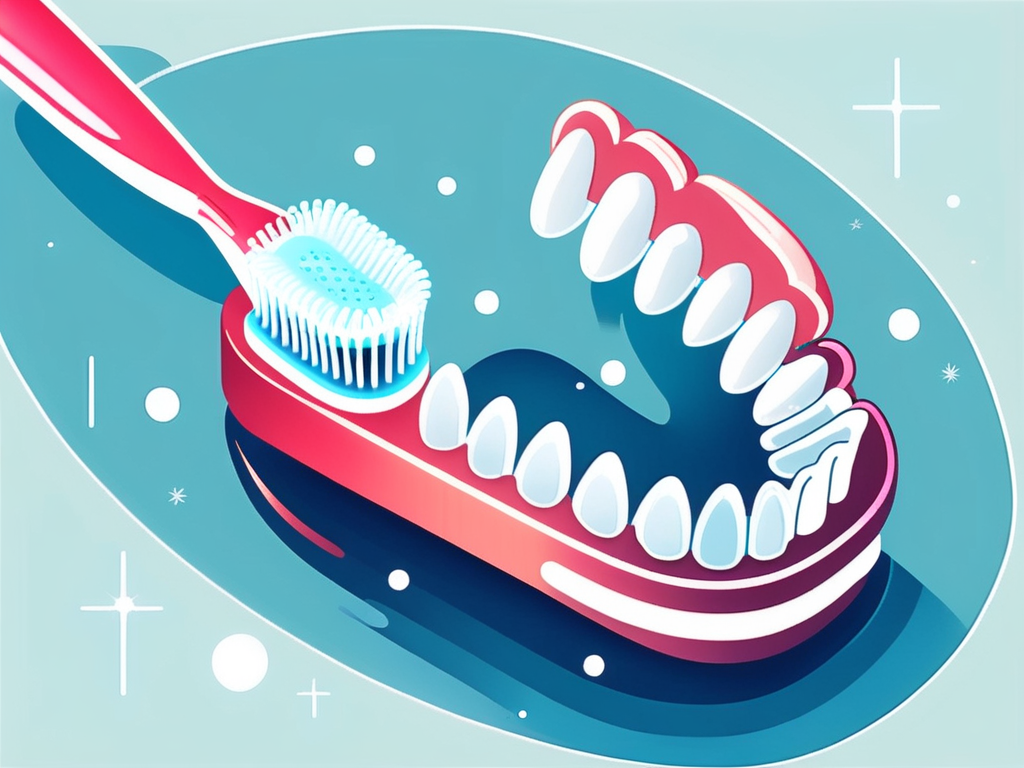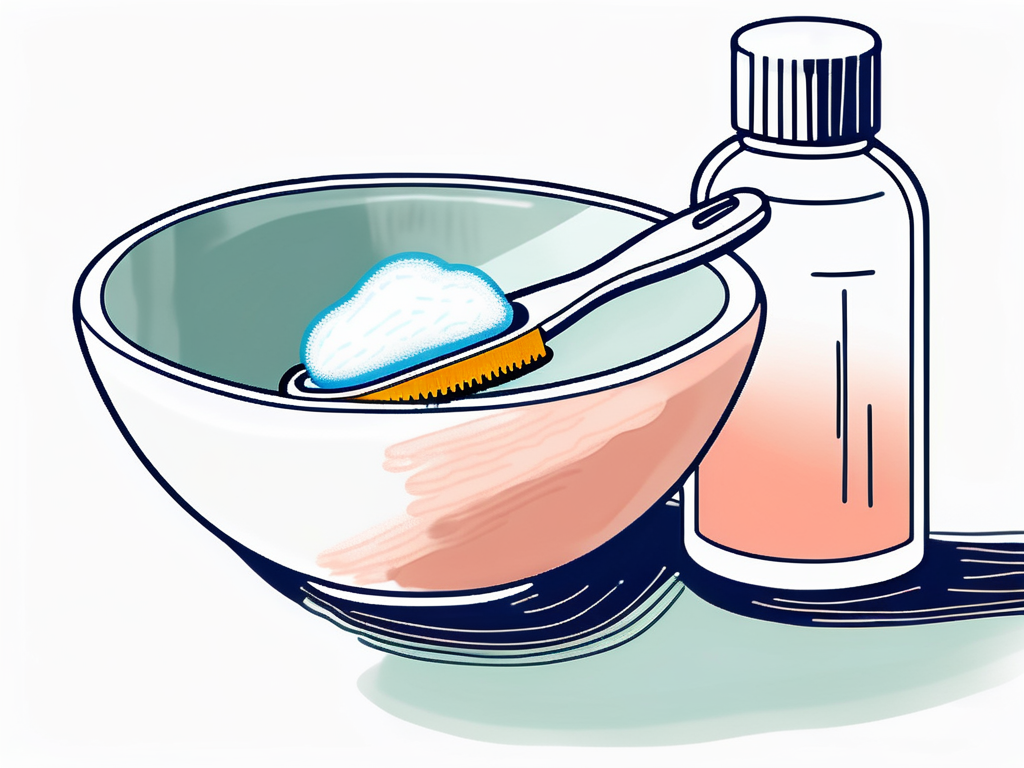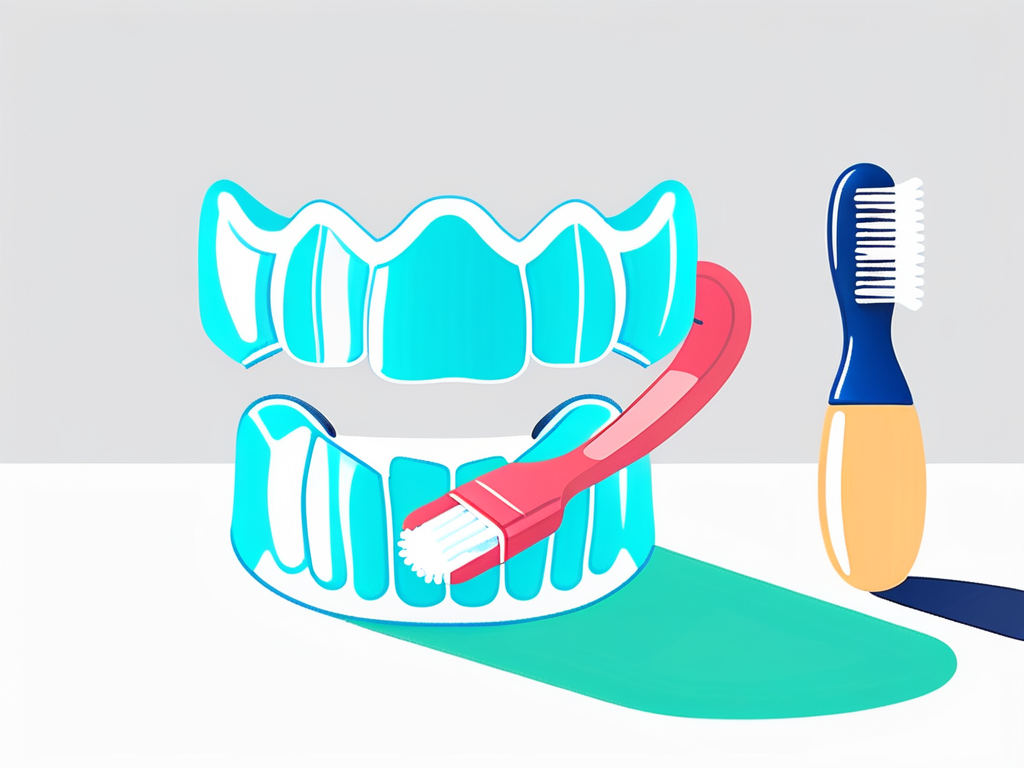A mouth guard is an essential oral appliance that helps protect your teeth, jaw, and overall oral health. Whether you wear it for sports, teeth grinding, or other purposes, maintaining its cleanliness should be a top priority. Regular cleaning not only keeps your mouth guard in good condition but also ensures its effectiveness in protecting your teeth and gums. In this article, we will guide you on how to clean your mouth guard daily, providing you with the knowledge and techniques needed to maintain optimal hygiene.
Understanding the Importance of Cleaning Your Mouth Guard
A mouth guard plays a vital role in preserving your oral health and preventing injuries. By covering your teeth, it serves as a barrier against possible damage caused by sports-related impact or teeth grinding. However, without regular cleaning, your mouth guard can become a breeding ground for bacteria, leading to various oral health issues.

The Role of Mouth Guards in Oral Health
Mouth guards provide a protective layer that absorbs the impact during physical activities. They help prevent tooth fractures, dislocations, and injuries to the jaw and soft tissues of the mouth. By acting as a cushion, mouth guards reduce the severity of trauma, protecting your teeth and gums from potential harm.
Risks Associated with Dirty Mouth Guards
When you fail to clean your mouth guard regularly, you expose yourself to several health risks. Bacteria, fungi, and other microorganisms thrive in warm and moist environments, which your mouth guard can provide if left unattended. Consequently, an unclean mouth guard can lead to bad breath, gum infections, tooth decay, and even oral diseases.
Proper maintenance of your mouth guard is essential to ensure its effectiveness and longevity. After each use, rinse your mouth guard with cold water to remove any debris or saliva. Use a toothbrush and mild soap to gently scrub the guard, making sure to reach all its crevices. Thoroughly rinse it again before allowing it to air dry completely. Additionally, consider using a specialized mouth guard cleaner or soaking it in a mixture of water and vinegar to disinfect and eliminate any lingering bacteria.
Choosing the Right Mouth Guard Cleaning Products
When selecting cleaning products for your mouth guard, opt for those specifically designed for oral appliances. Avoid using harsh chemicals or abrasive cleaners that may damage the material of the guard. Look for cleaning tablets, sprays, or foams that are antimicrobial and safe for use in your mouth. Regularly disinfecting your mouth guard not only ensures proper hygiene but also helps maintain its structural integrity, keeping it functional for a longer period.
Materials Needed for Cleaning a Mouth Guard
Before we delve into the step-by-step guide, let's ensure you have the necessary materials for cleaning your mouth guard. There are two options available: common household items or specialized cleaning products.

Ensuring your mouth guard is clean is essential for maintaining good oral hygiene and preventing bacterial growth. Regular cleaning not only prolongs the life of your mouth guard but also ensures that it remains safe to use for your oral health.
Common Household Items for Mouth Guard Cleaning
If you prefer a budget-friendly and readily accessible cleaning solution, you can use basic household items. These include mild soap, toothpaste, toothbrush, warm water, and a clean towel or paper towel.
Mild soap is gentle enough to clean your mouth guard without causing damage, while a toothbrush can help scrub away any debris or residue. Warm water is effective in rinsing off any remaining particles, and a clean towel ensures your mouth guard is dry before storage.
Specialized Cleaning Products for Mouth Guards
Alternatively, you can opt for specialized cleaning products designed specifically for mouth guards. These products are available in various forms, including cleaning tablets, sprays, and wipes. They are formulated to effectively eliminate bacteria, remove stains, and leave your mouth guard fresh and odor-free.
Cleaning tablets are convenient for a thorough clean, as they can penetrate hard-to-reach areas of your mouth guard. Sprays provide a quick and easy solution for on-the-go cleaning, while wipes offer a portable option for maintaining your mouth guard's cleanliness throughout the day.
Step-by-Step Guide to Cleaning Your Mouth Guard
Now that you have the necessary materials, we will discuss the step-by-step process of cleaning your mouth guard. By following these guidelines, you can ensure proper hygiene and extend the lifespan of your appliance.
Mouth guards are essential for protecting your teeth during physical activities or while sleeping. However, without proper cleaning, they can become breeding grounds for bacteria, leading to oral health issues. Regular maintenance is key to keeping your mouth guard in top condition.
Preparing Your Mouth Guard for Cleaning
First and foremost, always rinse your mouth guard with cool or lukewarm water before and after each use. This removes any debris or substances that may have accumulated.
Once a day, you should perform a more thorough cleaning. Start by filling a clean bowl or sink with warm water and a small amount of mild soap. Submerge your mouth guard and gently agitate it to dislodge any dirt or buildup.
It's important to note that using hot water can warp the shape of your mouth guard, rendering it ineffective. Stick to cool or lukewarm water to maintain the integrity of the appliance.
Cleaning Techniques for Optimal Hygiene
For common household items, use a soft toothbrush to carefully scrub the mouth guard's surface, both inside and out. Make sure to reach all the nooks and crevices. Afterward, rinse it thoroughly with water to remove any soap residue.
If you prefer using specialized cleaning products, follow the instructions provided on the packaging. Typically, you will need to soak the mouth guard in a solution or apply a cleaning agent. After the recommended duration, rinse the appliance with water.
Proper storage is also crucial in maintaining a clean mouth guard. Avoid leaving it in direct sunlight or hot environments, as this can degrade the material over time. Store your mouth guard in a ventilated case to prevent bacterial growth.
Regardless of the cleaning method you choose, remember to thoroughly dry your mouth guard before storing it. A clean towel or paper towel can aid in this process.
Daily Maintenance Tips for Your Mouth Guard
In addition to regular cleaning, there are essential daily maintenance practices that should become part of your routine. These practices help ensure the longevity and hygiene of your mouth guard.
One crucial aspect of maintaining your mouth guard is to ensure proper storage when not in use. Storing your mouth guard correctly can significantly impact its lifespan and effectiveness. Avoid leaving it exposed to open air or sunlight, as this can promote bacterial growth and material degradation. Instead, consider investing in a well-ventilated case or container specifically designed for mouth guards. This will not only protect your mouth guard from external elements but also maintain its shape and structure over time. Furthermore, storing your mouth guard away from pets or young children is vital to prevent accidental damage and maintain its hygiene.
Proper Storage for Mouth Guards
When you're not using your mouth guard, it's crucial to store it properly. Avoid leaving it exposed to open air or sunlight, as this can promote bacterial growth and material degradation. Instead, keep it in a well-ventilated case or container specifically designed for mouth guards. Additionally, store your mouth guard away from pets or young children to prevent accidental damage.
Regularly inspecting your mouth guard is another essential practice to incorporate into your daily routine. Periodically check for any signs of wear and tear, such as cracks, holes, or a decrease in effectiveness. If you notice any damage, it's crucial to replace your mouth guard promptly. A damaged mouth guard not only loses its ability to provide optimal protection but can also lead to discomfort or potential injury during use.
Regular Inspection and Replacement of Mouth Guards
Periodically inspect your mouth guard for any signs of wear and tear. If you notice cracks, holes, or a decrease in its effectiveness, it's essential to replace it promptly. A damaged mouth guard loses its ability to offer optimal protection and may cause discomfort or injury.
Addressing Common Questions about Mouth Guard Cleaning
As you prioritize the daily cleaning of your mouth guard, you may come across specific concerns or queries. It's crucial to address these questions to ensure you maintain a clean and safe oral appliance.

Dealing with Persistent Stains or Odors
If you notice persistent stains or odors on your mouth guard, follow the cleaning techniques outlined above more frequently. For tough stains, you can use a non-abrasive toothpaste or a whitening solution specifically designed for mouth guards. Additionally, leaving your mouth guard exposed to sunlight for a short period can help eliminate stubborn odors.
Safety Measures in Using Cleaning Agents
When utilizing specialized cleaning products, always carefully read and follow the instructions provided by the manufacturer. Some products may contain chemicals that could be harmful if ingested or if they come into contact with your eyes. Store these products out of reach of children and pets, and ensure proper ventilation when using them.
By adhering to best practices when cleaning your mouth guard and adopting proper maintenance techniques, you can confidently enjoy its benefits for a long time. Remember, a clean mouth guard is not only essential for maintaining your oral health but also for ensuring your overall well-being. Incorporate these daily cleaning habits into your routine, and reap the rewards of a healthy, well-protected smile.













